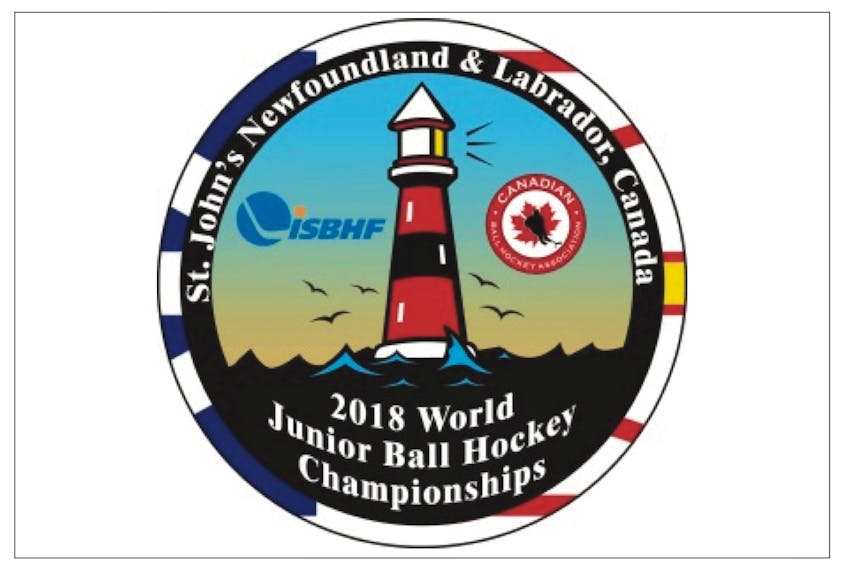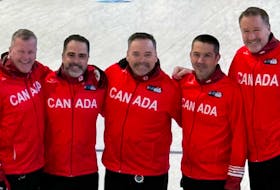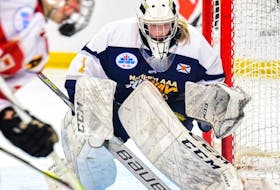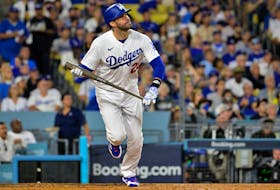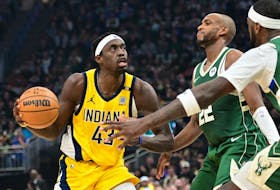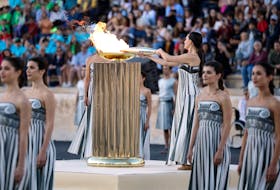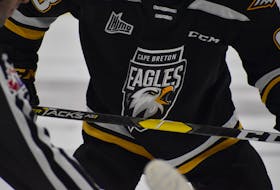In ball hockey, the blueline floats. Not much else does.
The 2018 world junior ball hockey championships begin today at the Glacier in Mount Pearl, where seven countries will be represented in the chase for titles in under-18 and under-20 divisions.
Defending champion Canada, the United States, Slovakia, the Czech Republic, Great Britain, Italy and Switzerland are entered in U18s. In the U20s, where the Slovaks are defending champs, it’s a five-nation lineup, with the Italians and Swiss not represented.
There will be hundreds of athletes and almost all, if not every one of them, can scoot all day.
“It’s just the same game as (ice) hockey, except you can’t glide,” said Steve Power of St. John’s, who is president of both the Newfoundland and Labrador Ball Hockey Association and Canadian Ball Hockey Association.
When he says “glide,” Power, a chief organizer of these championships isn’t just talking about the skating motion. Since the ball hockey game is played on the full length of the what normally would be an ice surface — but in this case, a cement slab — players need to be running machines.
“To play this game, you have to be able to go all the time. If you stop, you lose,” said Power. “You’re going to see players who are in great condition.”
This also means that roster depth — such as that traditionally held by Canada and Slovakia — is critical for success.
“A coach who cuts his bench short doesn’t last long in this game. You need to rely on every player you have or you’ll wear out,” said Power, who was head coach for Canada’s silver medal-winning entry at the last world juniors, two years ago in Sheffield, England.
The need to be in tip-top shape extends to everyone on the floor, including the referees, who don’t get the benefit of line changes.
“There are not too many fat referees at this level,” said Power.
It’s a two-man system of officials, who not only call penalties, but offsides, as well.
“To play this game, you have to be able to go all the time. If you stop, you lose.”
Steve Power
The latter involves the biggest strategic difference between ball hockey and ice hockey.
In ball hockey, there is a floating blueline. What this means is that once a team moves over the blueline — onside and in control of the ball — the attacking zone automatically expands to become the entire offensive end beyond the centre red line, meaning attacking teams can then move the ball back and forth over the blueline and still be onside.
Also notable is that all stick fouls in ball hockey — slashing, cross-checking and high-sticking — are four-minute penalties.
Both surfaces at the Glacier are being used for the championships, which run to Sunday, when medal games will be played.
The first games in the U18 event are this nine o’clock this morning, including Canada and Switzerland at Glacier 1. The Canadian under-18 side includes four Newfoundlanders, Jack Keough of Mount Pearl, Dawson Mercer of Bay Roberts, Adam Mouland of Gander and Brent Broaders of Fogo Island.
There are also four players from this province — Mount Pearl’s James O’Brien and Jesse Sutton, Joel Bishop of St. John’s and Gander’s Jordan Maher — on the Canadian U20 team , which opens its schedule against the Americans at 9 p.m. today.
Gander’s Mike Dyke is an assistant on Canada’s under-20 coaching staff.
Mercer, Sutton, Bishop and Maher all played in the Quebec Major Junior Hockey League last season.
This is the second time Newfoundland has hosted the International Street and Ball Hockey Federation’s world junior tournament, The last time was 2008, when the metro-area event involved three age groups, including under-16s.
This year, the U16 World Cup was held separately in the Czech Republic.
Much like the under-17 level in ice hockey, the Canadian Ball Hockey Association now looks on the under-16s as a developmental tourney for older age-group events, and actually had two teams — East and West entries in Europe this year.
Canada West won gold, while Canada East (which had defeated their western brethren in exhibition play) finished fifth with a team that included a dozen players from this province.
Nicholas Sexton, Mark Hillier and Brody Chatman of Labrador City, Sean Baker of Harbour Breton, Corey Parsons of Bay Roberts, Alex Doody of C.B.S. and Kieran Burke, Ethan Moore, Nicholas Moore and Zach Dean of Mount Pearl populated an East roster coached by Tom Walsh of Clarenville and assistant Ryan Morgan of St. John’s
Held concurrently with the U16 World Cup was the world women’s junior (U20) championship, with Canada losing to the host Czechs in the final. Jessica Davis of C.B.S. was part of the Canadian team.
[email protected]
Twitter: @telybrendan

